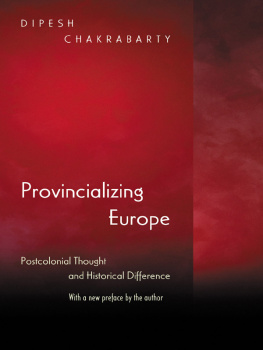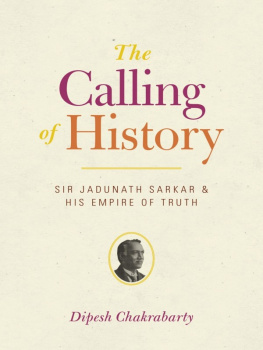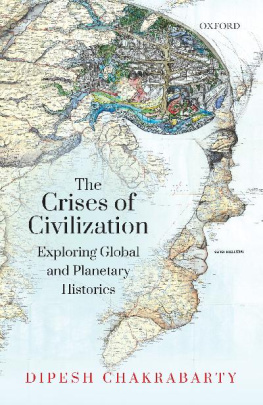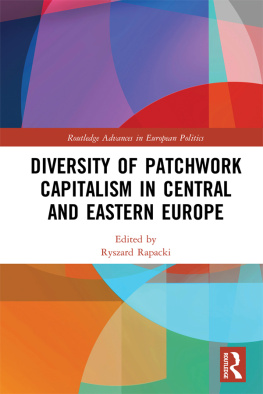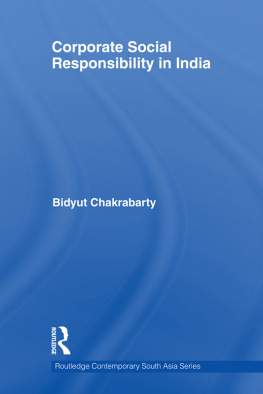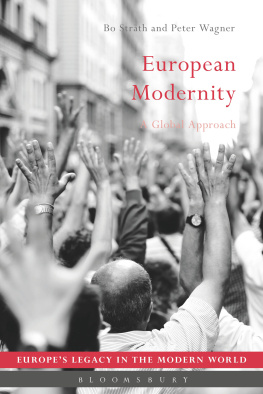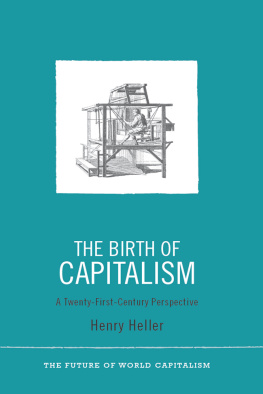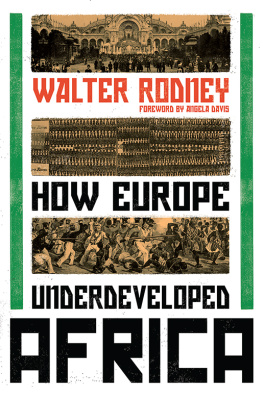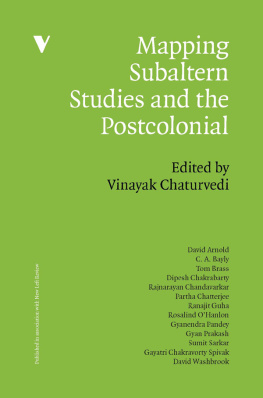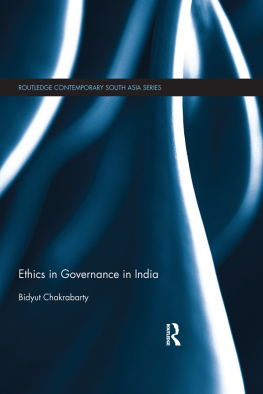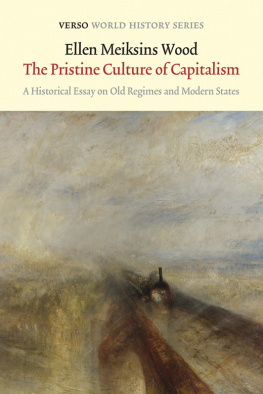EDITORS
Sherry B. Ortner, Nicholas B. Dirks, Geoff Eley
A LIST OF TITLES
IN THIS SERIES APPEARS
AT THE BACK OF
THE BOOK
PRINCETON STUDIES IN CULTURE/POWER/HISTORY
Copyright2000 by Princeton University Press
Published by Princeton University Press, 41 William Street,
Princeton, New Jersey 08540
In the United Kingdom: Princeton University Press,
3 Market Place, Woodstock, Oxfordshire OX20 1SY
All Rights Reserved
Reissue, with a new preface by the author, 2008
ISBN 978-0-691-13001-9
The Library of Congress cataloged the original edition of this book as follows
Chakrabarty, Dipesh.
Provincializing Europe : postcolonial thought and historical
difference / Dipesh Chakrabarty.
p. cm. (Princeton studies in culture/power/history)
Includes bibliographical references and index
ISBN 0-691-04908-4 (alk. paper)ISBN 0-691-04909-2 (pbk. : alk. paper)
1. HistoriographyEurope. 2. EuropeHistoryPhilosophy.
3. Eurocentrism. 4. IndiaHistoriography. 5. Decolonization.
I. Title. II. Series.
D13.5. E85 C43 2000
901dc21 99-087722
British Library Cataloging-in-Publication Data is available
This book has been composed in Sabon
Printed on acid-free paper.
press.princeton.edu
Printed in the United States of America
1 3 5 7 9 10 8 6 4 2
For
Anne, Fiona, Robin
Debi, Gautam, Shiloo
IN FRIENDSHIP
Preface to the 2007 Edition
Provincializing Europe in Global Times
I
For all the criticisms that could be leveled at him, Roland Barthes idea that a myth works by making the historical seem natural had something to it. Of course, by historical, Barthes did not mean anything we could find in books about history, because, for him, such books would themselves belong to mythic systems of representation. History, in Barthess famous essay on myth today, referred to the activity of living, an activity that, at least according to Barthes, was all about closing the gap to some degree (for it could never be fully closed) between the word and the world by orienting language more directly toward its referents out there. When caught up in the activity of living, words would mainly possess direct and practical connotation. Europe was not a word that ever bothered me in my middle-class Bengali childhood or youth as I was growing up in postcolonial Calcutta. The legacy of Europeor British colonial rule, for that is how Europe came into our liveswas everywhere: in traffic rules, in grown-ups regrets that Indians had no civic sense, in the games of soccer and cricket, in my school uniform, in Bengali-nationalist essays and poems critical of social inequality, especially of the so-called caste system, in implicit and explicit debates about love-match versus arranged marriages, in literary societies and film clubs. In practical, everyday living Europe was not a problem to be consciously named or discussed. Categories or words borrowed from European histories had found new homes in our practices. It made perfect sense, for instance, when radical friends in college would refer to someonesay, an obstructionist would-be father-in-lawas being full of feudal attitudes, or when we debatedfor interminable hours over cheap cups of coffee or tea in inexpensive restaurants or tea shops where we generally overstayed our welcomeif the Indian capitalists were a national bourgeoisie or a comprador class playing second fiddle to foreign capital. We all knew, practically, what these words meant without having to put them under any kind of analytic microscope. Their meanings did not travel beyond the immediate environment in which they were being used.
Why, then, speak of provincializing Europe? The answer to this question has to do with the story of my own dislodgment from this everyday life in ways that were both metaphorical and physical. I will recount the story briefly, for the implications of it go, I think, beyond the merely autobiographical. My metaphorical dislodgment from my everyday middle-class life happened as I trained, in Marxist circles in the city, to be a professional historian for whom Marxs ideas were to be a conscious analytical tool. Words familiar from their everyday use (I should explain that I had been a student of science and business management before) now grew analytical wings, soaring into the level of what Barthes would have called second- or third-order metalanguages. Marxism, even more than liberalism, was the most concentrated form in which one encountered the intellectual pasts of Europe in Indian social-science circles.
It was about two decades ago, as I completed the manuscript for my book Rethinking Working-Class History: Bengal 18901940, that the question this book addresses began to formulate itself. The roots of my effort in labor history went back to some passionate debates in Bengali and Indian Marxism of my youth about the world-historical role the proletariat might play in a country such as India that was, still, predominantly rural. There were obvious things to be learned from the Chinese and the Vietnamese revolutions. Yet, the more I tried to imagine relations in Indian factories through categories made available by Marx and his followers, the more I became aware of a tension that arose from the profoundlyand one might say, parochiallyEuropean origins of Marxs thoughts and their undoubted international significance. To call historical characters whose analogues I knew in everyday life as familiar types by names or categories derived from revolutions in Europe in 1789 or 1848 or 1871 or 1917 felt increasingly like a doubly distancing activity. There was, first of all, the distance of historical objectivity that I was trying to enact. But there was also the distance of comical misrecognition similar to what I had often experienced watching performances of Bengali plays in which Bengali actors, cast as colonial Europeans, acted out their heavily Bengali-accented imitations of how Europeans might have spoken Bengali, that is to say, their own stereotypes of how Europeans may have perceived us! Something similar was happening to my characters from Bengali and Indian history now clad, in my text, in the European costumes lent by the Marxist drama of history. There was a sense of comicality in my own earnestness that I could not ignore.
Yet in the discussion of Marx that I was an heir to in Calcuttathe discussion was always mediated, for historical reasons, by the available English-language literature on the subjectthere was no room for thinking about Marx as someone belonging to certain European traditions of thought that he may have even shared with intellectuals who were not Marxists or who thought in a manner opposed to his. This was not something that arose from a deficiency of reading. Calcutta had no dearth of bibliophiles. People knew nooks and crannies of European scholarship. But there was no sense of academic practices as part of living, disputed intellectual traditions in Europe. No idea that a living intellectual tradition never furnished final solutions to questions that arose within it. Marxism was simply true. The idea of uneven development, for example, so central to much of Marxist historiography, was treated as a piece of truth, at most an analytical tool, but never as a provisional way of organizing information, or as even something that was originally invented in the workshop of the Scottish Enlightenment. Marx was right (though he needed updating) and anti-Marxists were plain wrong if not immoral: such were the stark political antinomies through which we thought. Even a Weber did not get much of a serious look-in in the 1970s in the passionate scholarship of Indian historians of Marxist persuasion. There were, indeed, some gifted non-Marxist social scientists and historians in India. The names of Ashis Nandy and the late Ashin Das Gupta or Dharma Kumar easily come to mind. But in the heady and troubled days of a political and cultural

